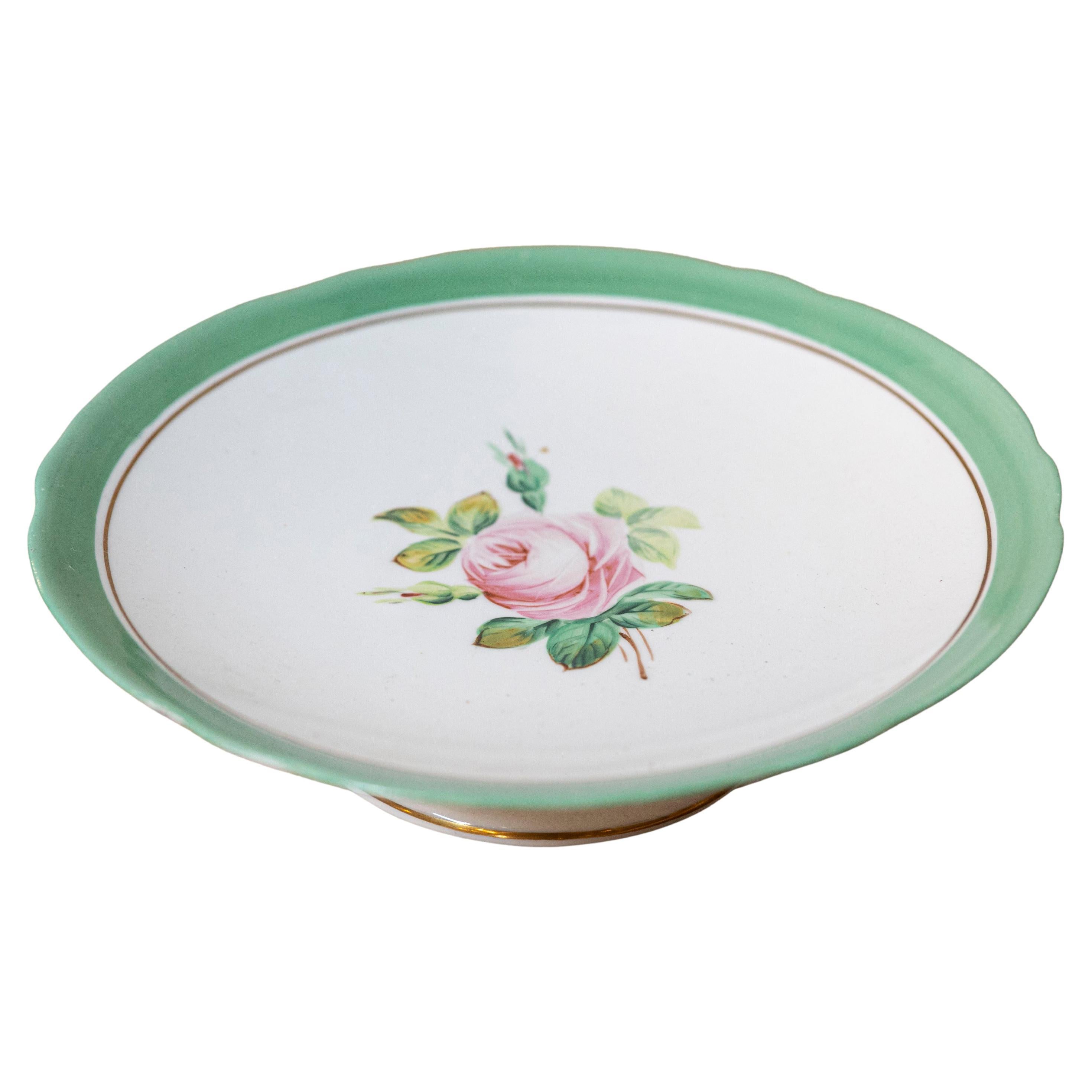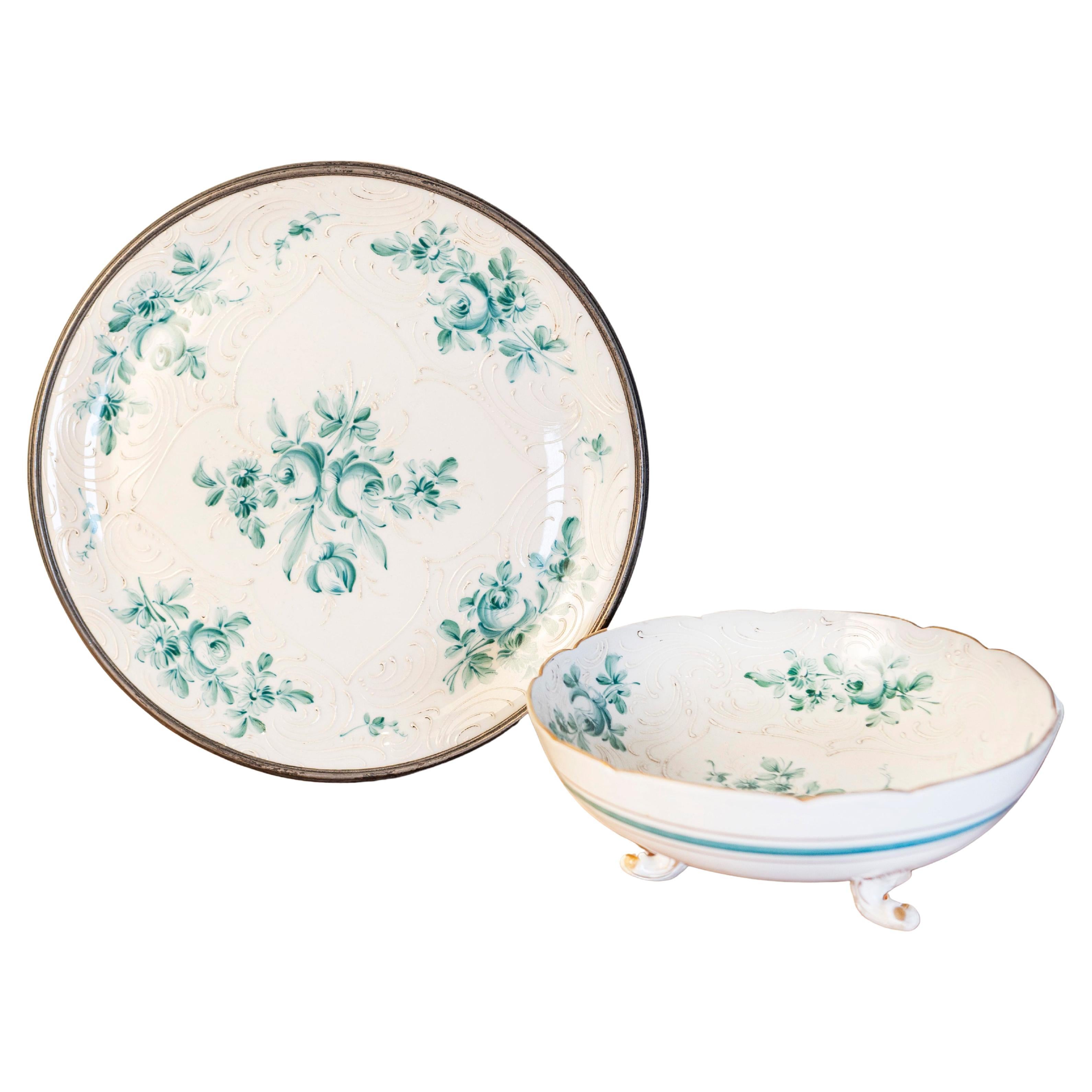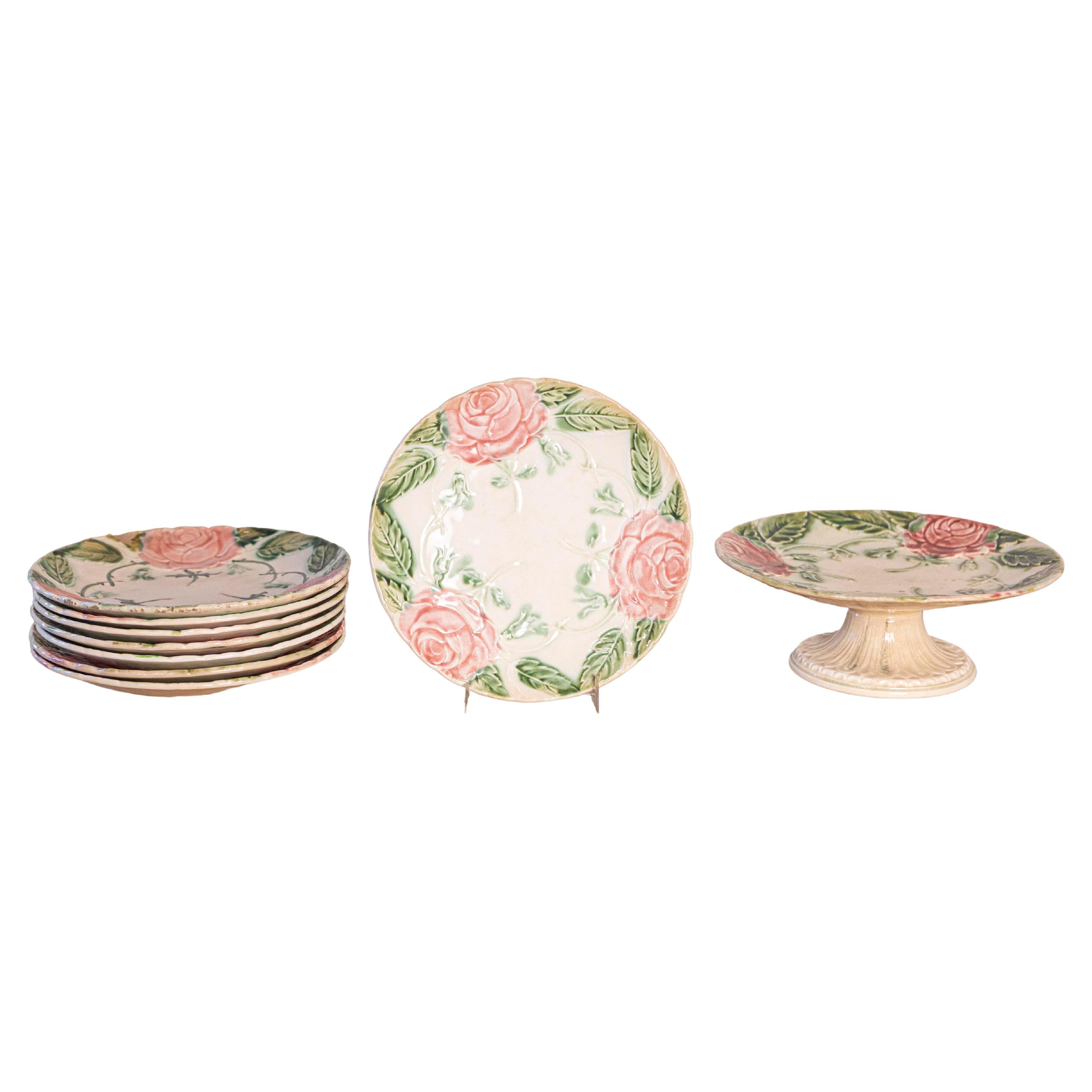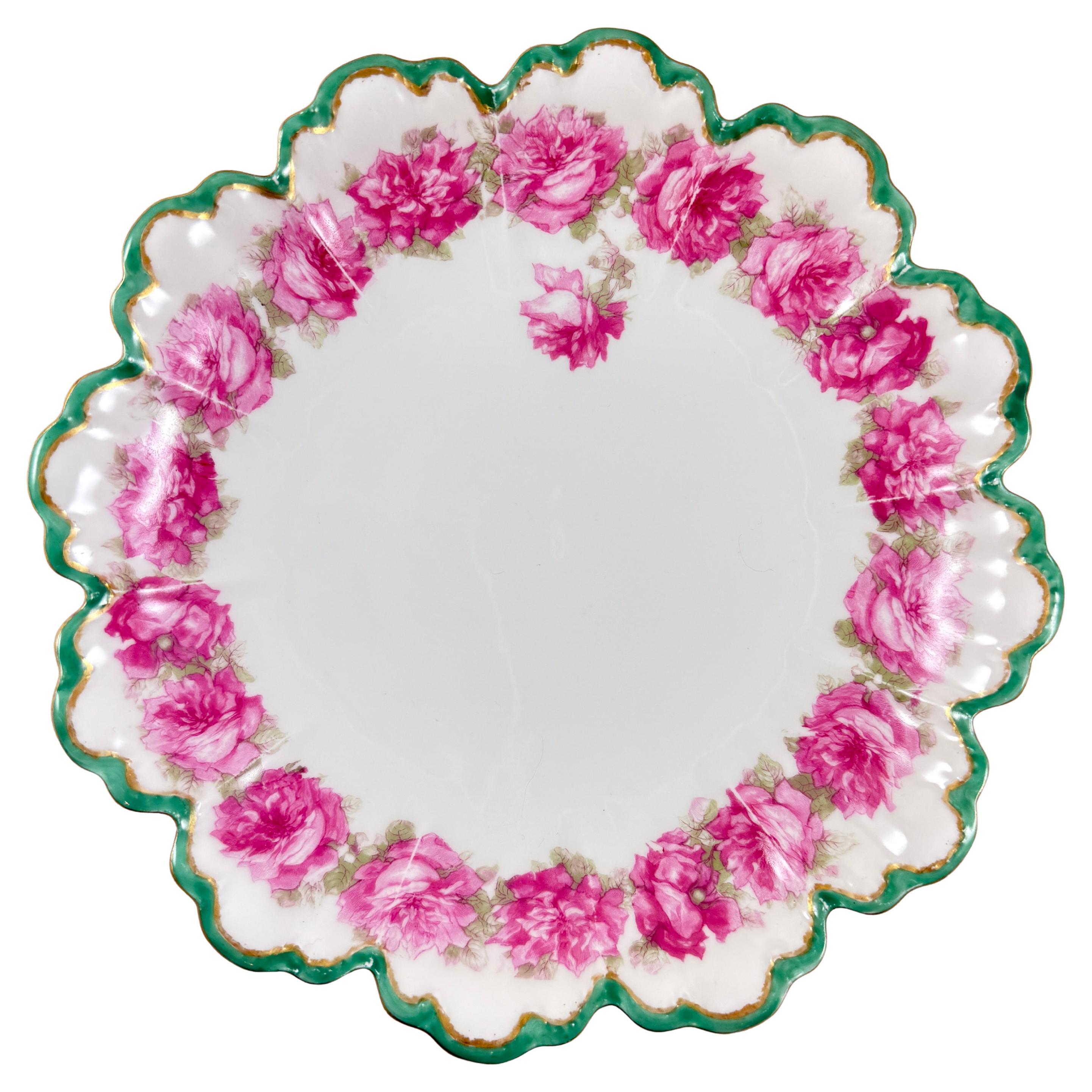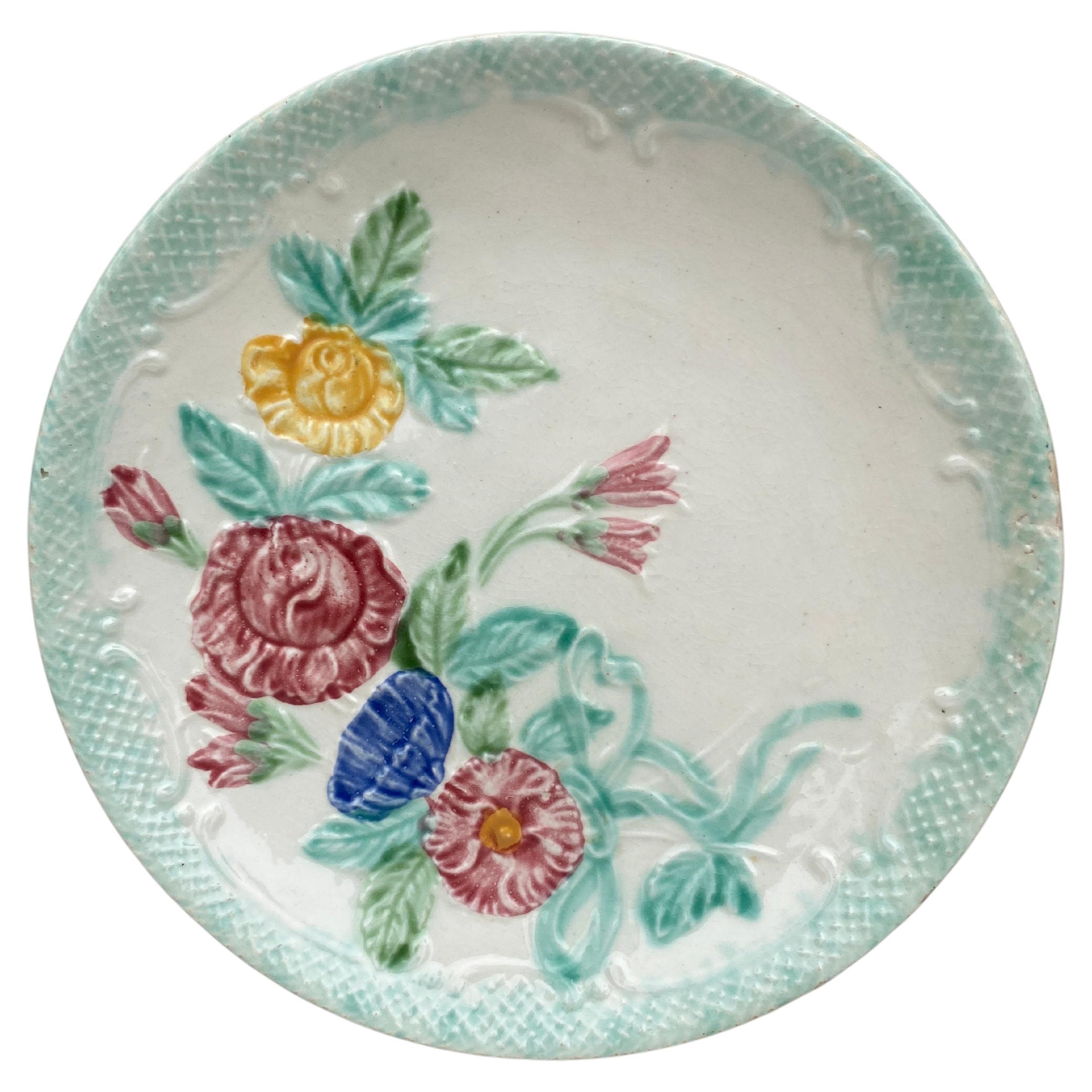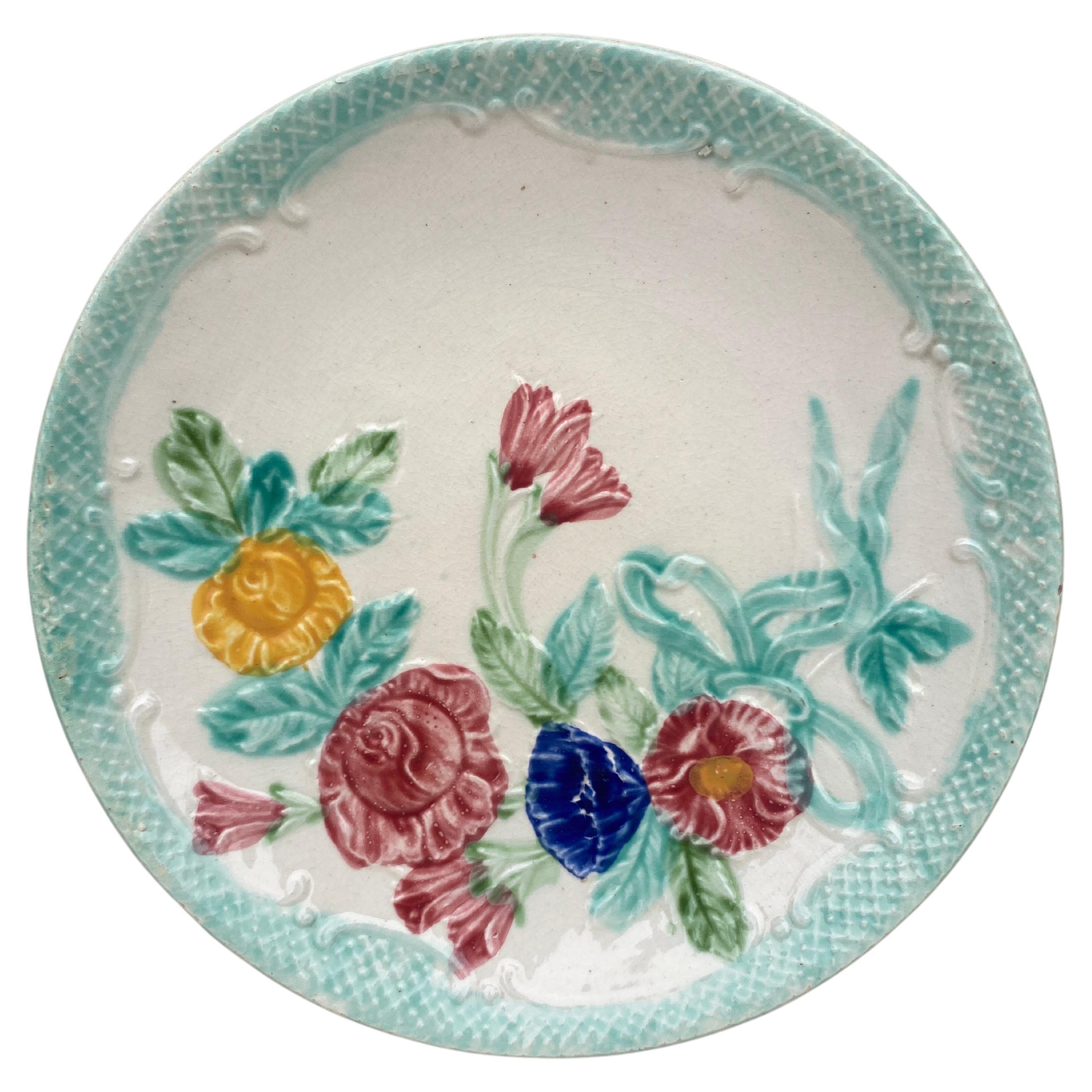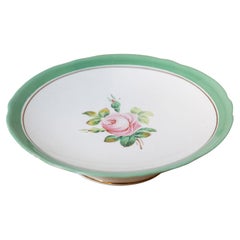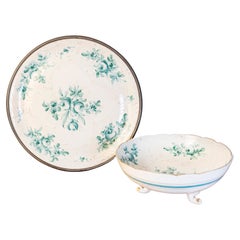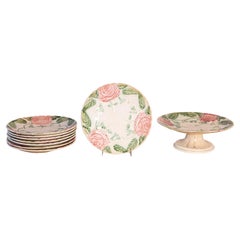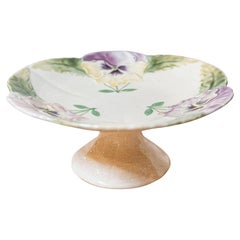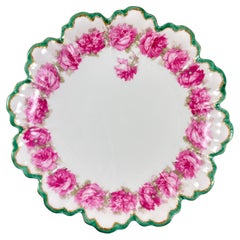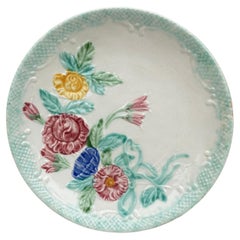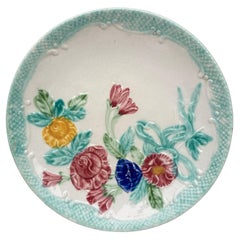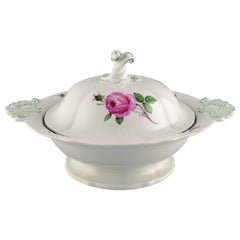Items Similar to English Victorian 1880s Botanical Compote with Roses, Green and Gold Accents
Want more images or videos?
Request additional images or videos from the seller
1 of 7
English Victorian 1880s Botanical Compote with Roses, Green and Gold Accents
$395
£297.93
€344.11
CA$553.42
A$615.37
CHF 322.16
MX$7,516.91
NOK 4,048.25
SEK 3,808.19
DKK 2,568.79
About the Item
An English Victorian botanical compote from the late 19th century, with pink roses, green and gold trim and hourglass-shaped base. Born in England during Queen Victoria's later years, this charming compote features a delicate central rose surrounded by buds and green leaves. The rim is adorned with a lovely shade of green accented with a gold trim that compliments the floral decor beautifully. Showcasing a slightly scalloped edge, the compote is raised on an hourglass-shaped base accented with green and gold highlights. With its delicate colors and skillfully executed decor, this English Victorian compote circa 1880 will bring a touch of elegance to any dining room.
- Dimensions:Height: 6.5 in (16.51 cm)Diameter: 11.25 in (28.58 cm)
- Materials and Techniques:
- Place of Origin:
- Period:
- Date of Manufacture:circa 1880
- Condition:Wear consistent with age and use. Age appropriate wear. Please look at the various photos available.
- Seller Location:Atlanta, GA
- Reference Number:Seller: PLT101stDibs: LU835939875522
About the Seller
5.0
Platinum Seller
Premium sellers with a 4.7+ rating and 24-hour response times
Established in 1982
1stDibs seller since 2007
1,038 sales on 1stDibs
Typical response time: 1 hour
- ShippingRetrieving quote...Shipping from: Atlanta, GA
- Return Policy
Authenticity Guarantee
In the unlikely event there’s an issue with an item’s authenticity, contact us within 1 year for a full refund. DetailsMoney-Back Guarantee
If your item is not as described, is damaged in transit, or does not arrive, contact us within 7 days for a full refund. Details24-Hour Cancellation
You have a 24-hour grace period in which to reconsider your purchase, with no questions asked.Vetted Professional Sellers
Our world-class sellers must adhere to strict standards for service and quality, maintaining the integrity of our listings.Price-Match Guarantee
If you find that a seller listed the same item for a lower price elsewhere, we’ll match it.Trusted Global Delivery
Our best-in-class carrier network provides specialized shipping options worldwide, including custom delivery.More From This Seller
View AllEnglish Victorian 1880s Floral Compote with Pink Roses, Green and Gold Trim
Located in Atlanta, GA
An English Victorian floral compote from the late 19th century, with pink roses and green and gold trim. Born in England during the reign of Queen Victoria, this lovely compote features a delicate central rose surrounded by buds and green leaves. The rim is adorned with a lovely shade of green accented with a gold trim that compliments the floral decor beautifully. Showcasing a slightly scalloped edge, the compote is raised on a circular base. With its lovely colors and skillfully executed decor, this English Victorian compote...
Category
Antique Late 19th Century English Serving Pieces
Materials
Faience
French Limoges Porcelain Bowl with Green Bouquet of Roses and Underplate
By Limoges
Located in Atlanta, GA
A French Limoges porcelain bowl from the late 19th century, with green bouquet of roses décor, petite gilt feet and matching underplate. Created by the AMR factory (Ancienne Manufact...
Category
Antique 19th Century French Napoleon III Serving Bowls
Materials
Porcelain
French 19th Century Majolica Compote and Plates with Roses, Sold Individually
Located in Atlanta, GA
A French majolica compote and seven plates from the 19th century, with roses and foliage, priced and sold individually. Born in France during the 19th century, these majolica plates ...
Category
Antique 19th Century French Platters and Serveware
Materials
Majolica
French Majolica Compote with Pansies and Scalloped Edge from the 19th Century
Located in Atlanta, GA
A French majolica compote from the 19th century with pansies and scalloped edge. Born in France during the 19th century, this compote features a décor of delicate purple pansies ador...
Category
Antique 19th Century French Platters and Serveware
Materials
Majolica
French, Tôle Tray with Hand-Painted Bouquet of Roses and Pierced Gallery
Located in Atlanta, GA
A French round tôle tray from the 20th century with hand-painted décor depicting a bouquet of roses, and pierced gallery. Created in France during the 20th century, this tôle tray fe...
Category
20th Century French Serving Pieces
Materials
Tôle
French 1850s Barbotine Majolica Jardinière by Thomas Sargent with Floral Décor
Located in Atlanta, GA
A French mid-19th century barbotine Majolica jardinière by French potter Thomas Sargent, with floral motifs. Born in France during the 19th century, thi...
Category
Antique Mid-19th Century French Planters, Cachepots and Jardinières
Materials
Ceramic, Faience, Majolica
You May Also Like
French Haviland Limoges Petal Shaped Rose Bowl
By Haviland & Co.
Located in Philadelphia, PA
An unusual shaped porcelain bowl from Haviland Limoges, France – circa 1900.
Decorated by hand on both the front and back with running borders of Pink roses and green leaves.
The s...
Category
Antique Early 1900s French Romantic Decorative Bowls
Materials
Porcelain
French Majolica Roses & Flowers Plate Salins, Circa 1890
By Salins
Located in Austin, TX
French Majolica Roses & Flowers Plate Salins, Circa 1890.
Category
Antique 1890s French Rustic Dinner Plates
Materials
Ceramic
French Majolica Roses & Flowers Plate Salins, Circa 1890
By Salins
Located in Austin, TX
French Majolica Roses & Flowers Plate Salins, Circa 1890.
Category
Antique 1890s French Rustic Dinner Plates
Materials
Ceramic
Large Antique Meissen Lidded Tureen in Hand Painted Porcelain with Pink Roses
Located in København, Copenhagen
Large antique Meissen lidded tureen in hand-painted porcelain with pink roses, early 20th century.
Measures: 34 x 18.5 cm.
In excellent conditi...
Category
Early 20th Century German Porcelain
Materials
Porcelain
Antique Limoges Porcelain Pedestal Compote with Hand-Painted Floral Motifs
By Limoges
Located in LA CIOTAT, FR
This exquisite Limoges porcelain pedestal compote is a distinguished example of French decorative artistry, celebrated for its refinement and timeless charm. Raised on a flared circu...
Category
Early 20th Century French Decorative Bowls
Materials
Porcelain, Paint
Antique French Old Paris Dubarry Rose Centerpiece
Located in New Orleans, LA
Antique French Old Paris Dubarry rose centerpiece.
Category
Antique Mid-19th Century French Centerpieces
Materials
Porcelain
More Ways To Browse
Rose And Green Gold
Queen Victoria Silver
Gold Compote
Antique Hourglass
Gold Hourglass
Antique Green Glass With Gold Trim
Victorian Compotes
Green Compote
Victorian Hourglass
Sugar Cube Tongs
Vintage Baking Tins
Vintage Enamel Saucepan
Vintage Three Tier Cake Stands
5 Piece Cruet Set
Antique Wooden Chopping Boards
Chestnut Roaster Antique
Chestnut Roaster
Dansk Casseroles
